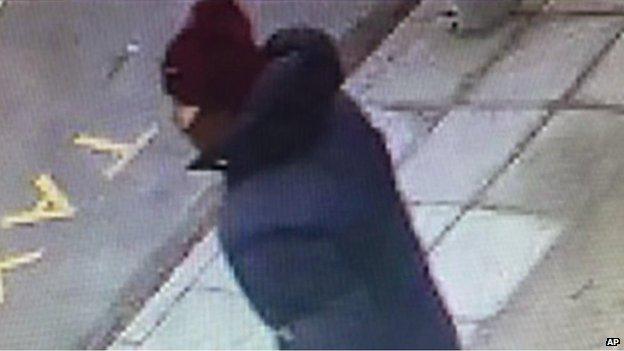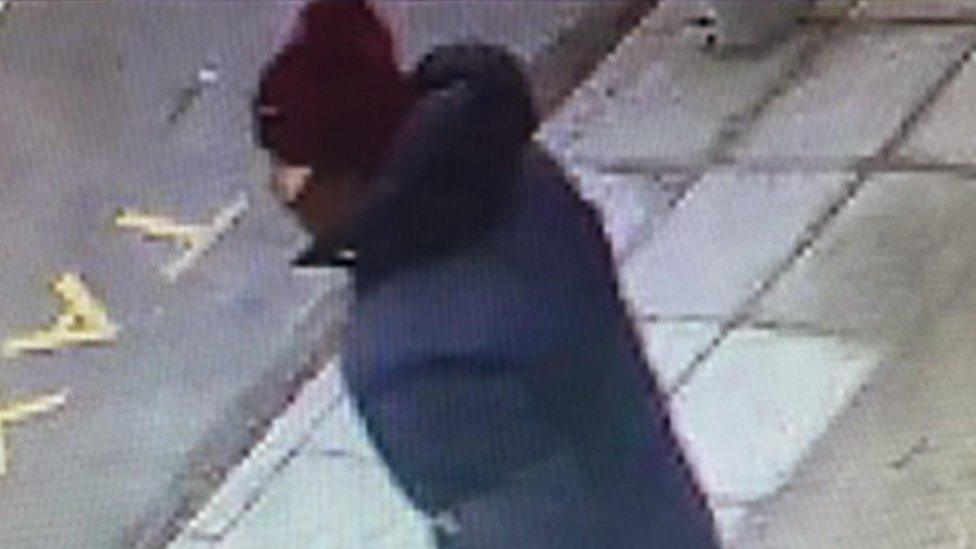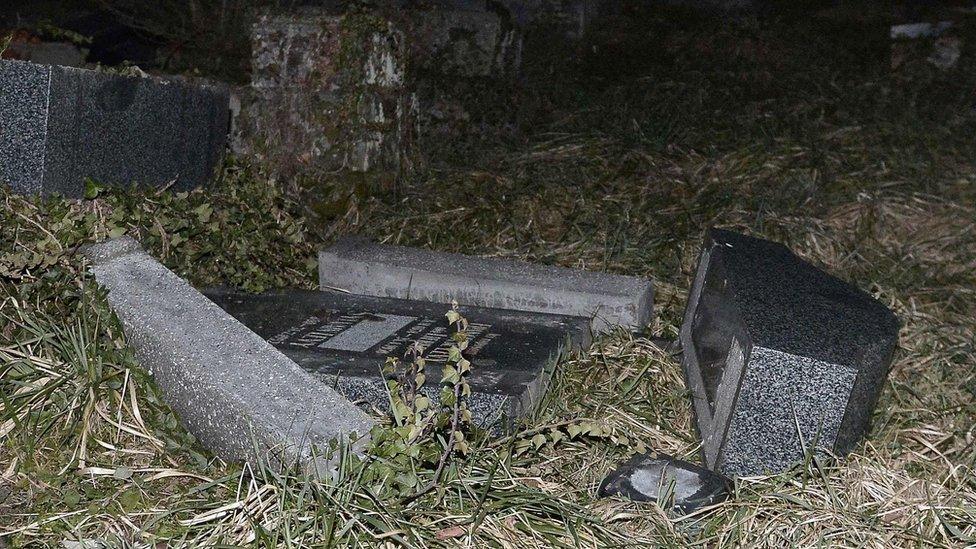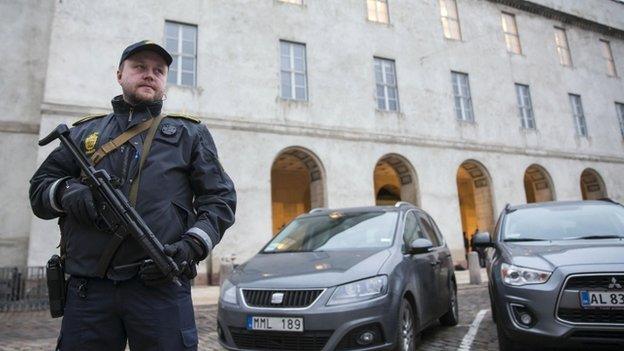Omar El-Hussein: Copenhagen criminal to prison radical
- Published

Police released this image of the suspected gunman on Saturday
The story seems familiar. A young man who was born, raised, and radicalised in a city he went on to attack. As details emerge of Saturday's shooting in Copenhagen, there are echoes of the attacks in Paris in January, and others before that.
Omar Abdel Hamid El-Hussein has been widely named as the gunman who killed two people and wounded five at a cultural centre and synagogue in the Danish capital.
El-Hussein was not an immigrant. He was of Palestinian descent but his parents settled in Denmark before he was born. Like the gunmen in Paris, he turned against the country of his birth.
'Hatred of Jews'
El-Hussein told psychologists he had a happy childhood and a good relationship with his parents and younger brother, according to a report obtained by Danish broadcaster TV2, but he failed to graduate from school or win a place at university.
Classmates who spoke to the Ekstra Bladet newspaper, external (in Danish) remembered a loner with a hot temper who loved to discuss Islam and the Israel-Palestine conflict. He was not afraid to voice a hatred of Jews, said one.
Officers have said the suspected gunman was a gang member, reports Sarah Corker
As a young man he was a criminal rather than a radical - reportedly arrested twice for possession of cannabis but let off with a warning.
He took up kickboxing and began to smoke cannabis heavily. He was arrested once in a Copenhagen nightclub with a knife, and another time with brass knuckles - earning him a night in custody, according to Ekstra Bladet.
But things took a much more serious turn in November 2013 when El-Hussein stabbed a 19-year-old man on a subway train. He evaded capture but was arrested by chance two months later in connection with a burglary, the Politiken newspaper reported, external (in Danish).
He escaped an attempted murder charge, convicted instead of grievous bodily harm and sentenced to two years in prison. It was there, it seems, that El-Hussein lurched towards the radicalised youth that police suspect murdered two people on Saturday.
An audio recording captured the moment the gunman struck (Listeners may find content distressing)
Michael Gjorup, head of the country's prison and probation service, told Danish media that authorities were concerned enough about changes in his behaviour in prison to notify Danish intelligence.
The head of Danish intelligence, Jens Madsen, acknowledged on Sunday that El-Hussein had been "on the radar" of his services. But like the Paris gunmen before him, he slipped the net.
Just two weeks after leaving prison, police believe, he interrupted a debate on free speech at a cultural centre with gunfire, killing film director Finn Noergaard, 55. Later that night, economist Dan Uzan, 37, was shot dead while helping guard the city's main synagogue.
'Known to police'
El-Hussein was raised in Copenhagen and he targeted Copenhagen - he was a "homegrown" radical. "We're not talking about a fighter who has been abroad in Syria or Iraq," said Danish Foreign Minister Martin Lidegaard.
"We are talking about a man who was known to the police due to his gang activities, criminal activities inside Denmark."
And while Mr Lidegaard said they believed El-Hussein planned to travel to Syria, Danish Prime Minister Helle Thorning-Schmidt said the authorities had no reason to believe he was part of any kind of cell in Denmark.
But intelligence agencies were alerted to El-Hussein, and his attack on Saturday is likely to raise even more questions about whether Europe can protect its citizens from other attackers like him.
- Published16 February 2015

- Published16 February 2015

- Published15 February 2015
